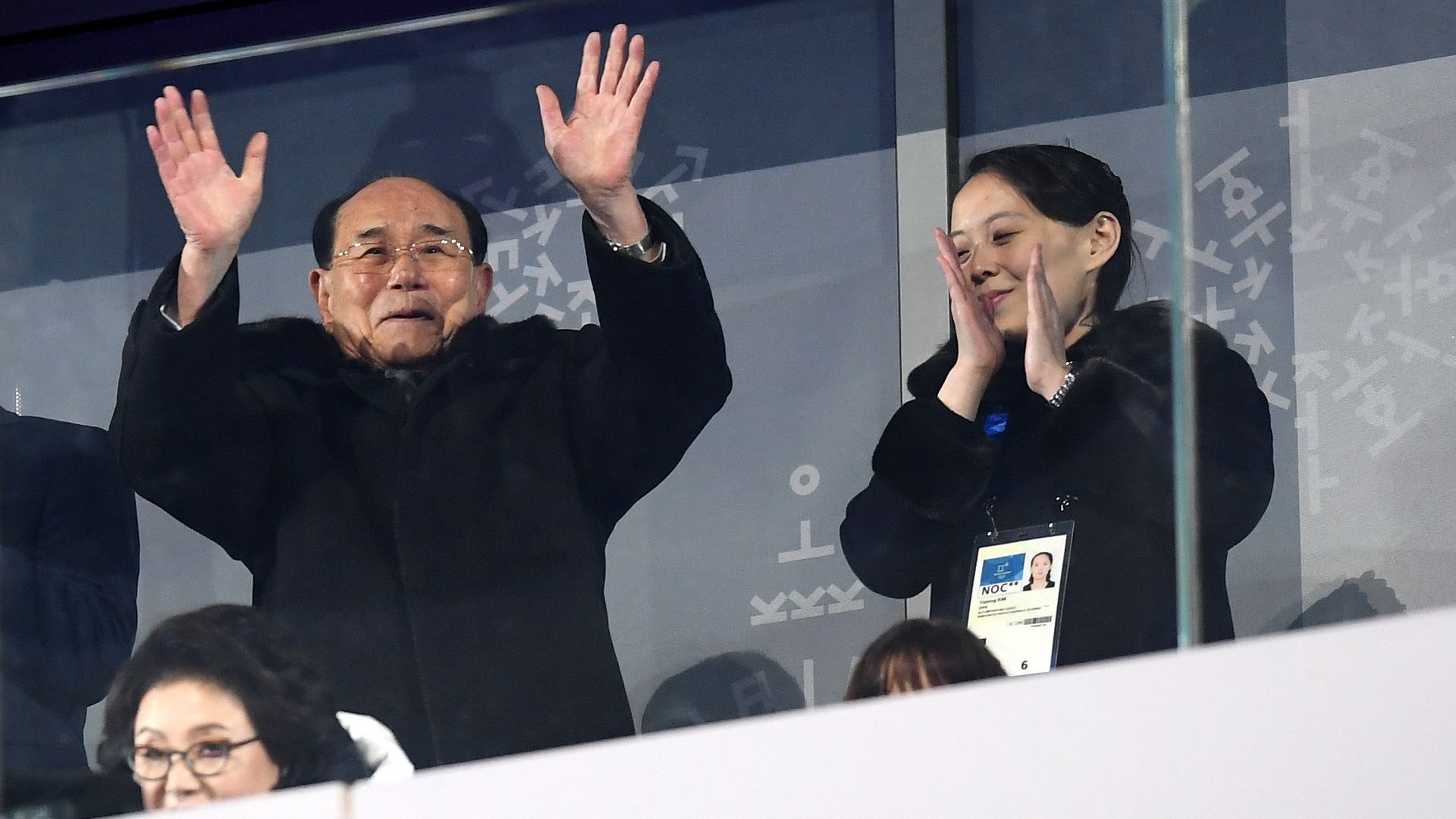Updated Feb 9, 2018 - Sports
Expert VoicesOlympic lull is a false calm in the North Korean nuclear crisis
Add Axios as your preferred source to
see more of our stories on Google.

Kim Yong-nam, North Korea's nominal head of state, and Kim Yo-jong, Kim Jong-un's sister, at the Opening Ceremony of the PyeongChang 2018 Winter Olympic Games. Photo: Matthias Hangst / Getty Images

